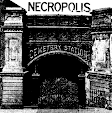ON THE EIGHTEENTH NIGHT OF HALLOWEEN … I watched The Mephisto Waltz (1971), directed by Paul Wendkos and based on Fred Mustard Stewart’s novel of the same name (which in turn derives from a Liszt piano piece). For the third night in a row, our movie’s plot is driven by ritual human sacrifice in exchange for the Devil’s supernatural favors.
A young Alan Alda plays a frustrated concert pianist turned journalist who interviews one of the world’s premier piano virtuosos. At first, the wealthy old virtuoso treats the journalist with austere contempt—until he notices his hands. The virtuoso deems the journalist’s hands ideal for piano playing. As a result, he instantly changes his demeanor toward the journalist, instead lavishing him with praise and inviting him to dinner parties. The virtuoso’s nubile daughter also abruptly turns her affections toward the journalist, to his wife’s chagrin. After we learn that the virtuoso is dying of cancer, it becomes clear that the uncomfortably close father-and-daughter pair have been grooming the journalist to serve as a corporeal host replacement. You see, the virtuoso and his daughter are in fact immortal Satanists who have mastered a black magic spell (involving a weird blue juice and plaster death masks) that allows them to move into other people’s brains.
Despite being full of the hallmarks of witchy 70’s horror, including candlelit nude incantations and ominously symbolic occult décor, The Mephisto Waltz’s narrative defies convention in several major respects. First, its initially skeptical protagonist does not defeat the forces of darkness but instead herself devotes herself to Lucifer, in order to fight hellfire with hellfire. Second, refreshingly, there is no representative of Christianity at all to oppose diabolical debauchery with puritanical righteousness, however flimsily. And finally, the heroine is not punished for her sexuality; rather, her desire turns out to be her redeeming strength. Also, perhaps owing to its origin in a novel, the dialog is surprisingly clever, and the spell’s mechanics are unusually well-developed. So, although there’s nothing very indelibly disturbing here compared to the best works of 70’s demonic horror, it does offer some neat twists on the genre.
TWISTED TWINS & DUPLICITOUS DOPPELGÄNGERS:
This film’s doppelgänger comes in the form of a dying man’s mind invading and possessing a healthy body. Through this process, the old virtuoso permanently steals the journalist’s face. Step by step, the virtuoso resumes his former habits by asserting his personality in ways that destroy what is left of the journalist’s life. One of these steps involves rekindling his romance with his own daughter, in his newly virile form. This strongly reminded me of H.P. Lovecraft’s classic short story, “The Thing on Doorstep,” wherein an aging sorcerer transfers his mind into his daughter’s head, much to the dismay of her husband. The incestuous implications of that earlier work are made explicit in The Mephisto Waltz (though the film doesn’t really know what to do with them, other than spell them out). In another interesting deviation from standard tropes, the spouse here isn’t immediately alienated by the changes to her husband’s behavior. Instead, she’s intrigued and even aroused by his new identity. Perhaps another fear behind the body-snatching subspecies of doppelgänger, then, is that our loved ones would actually prefer an alien soul over our own.


No comments:
Post a Comment